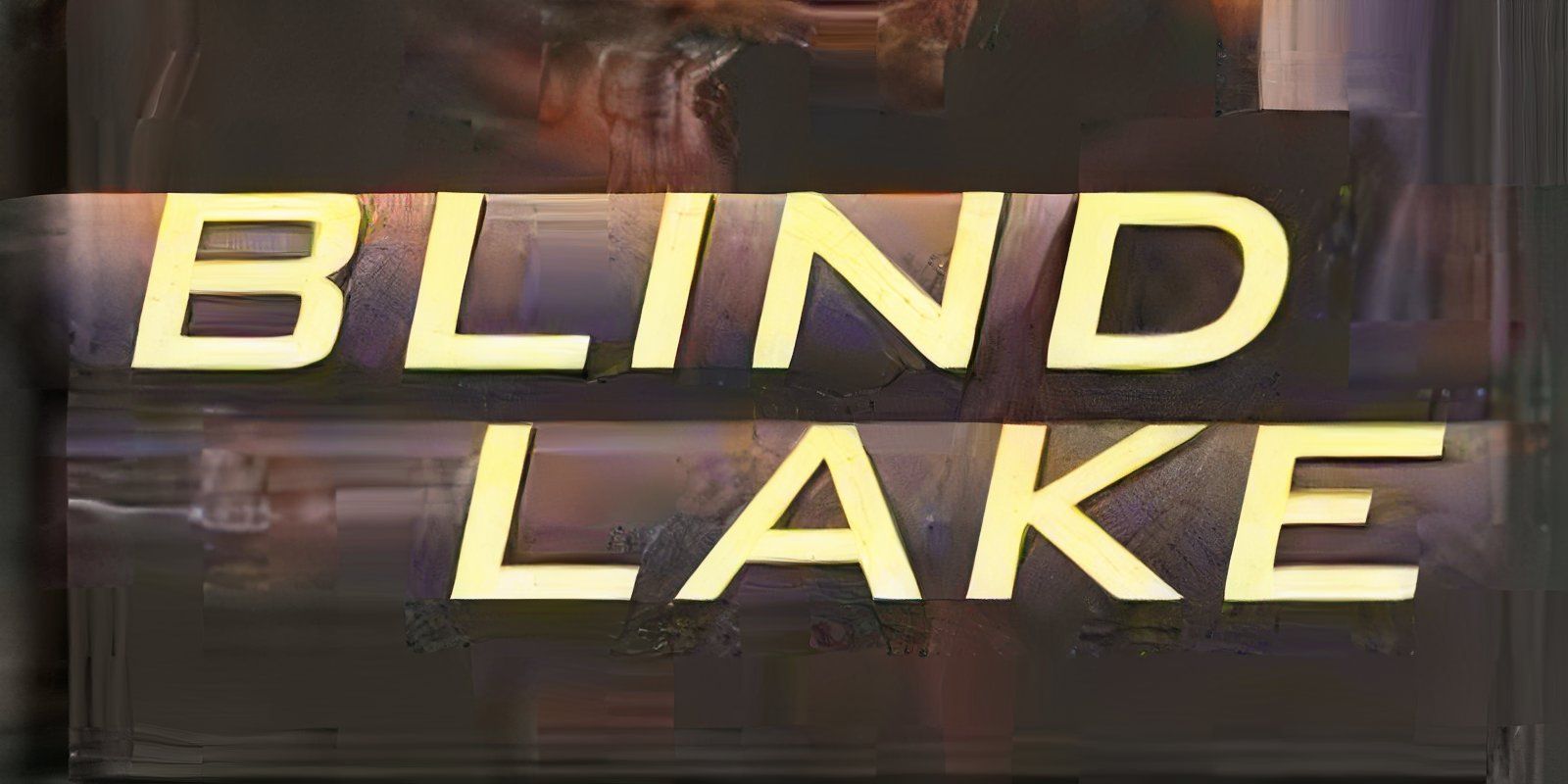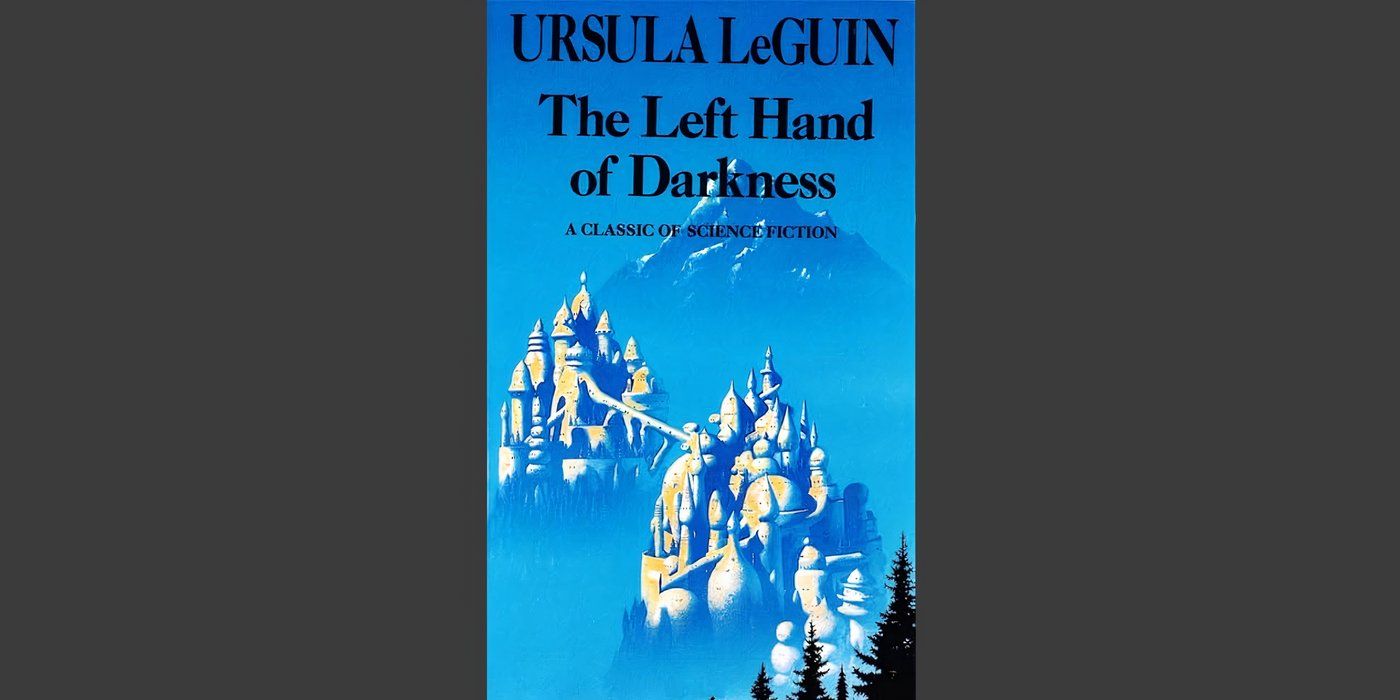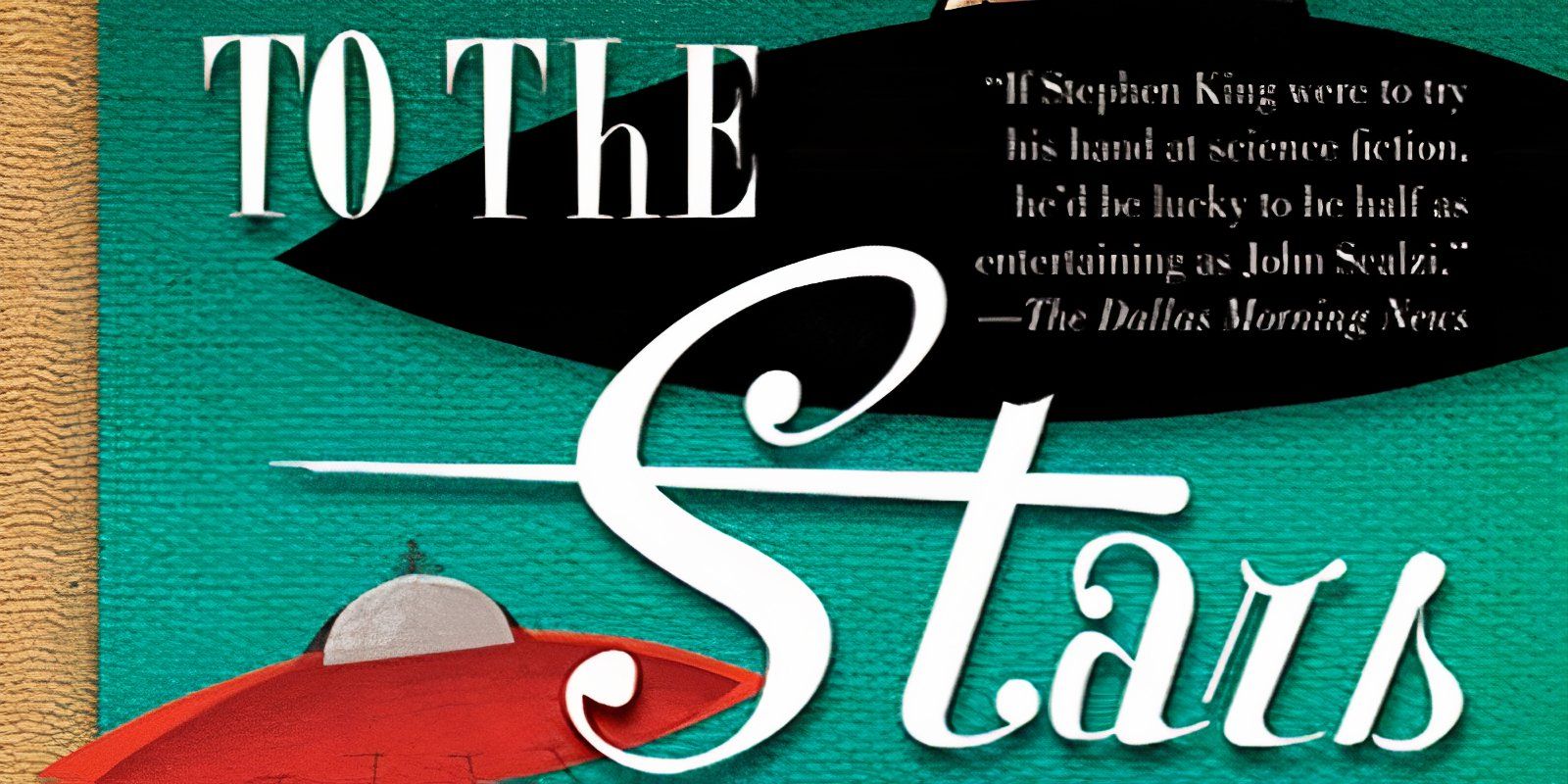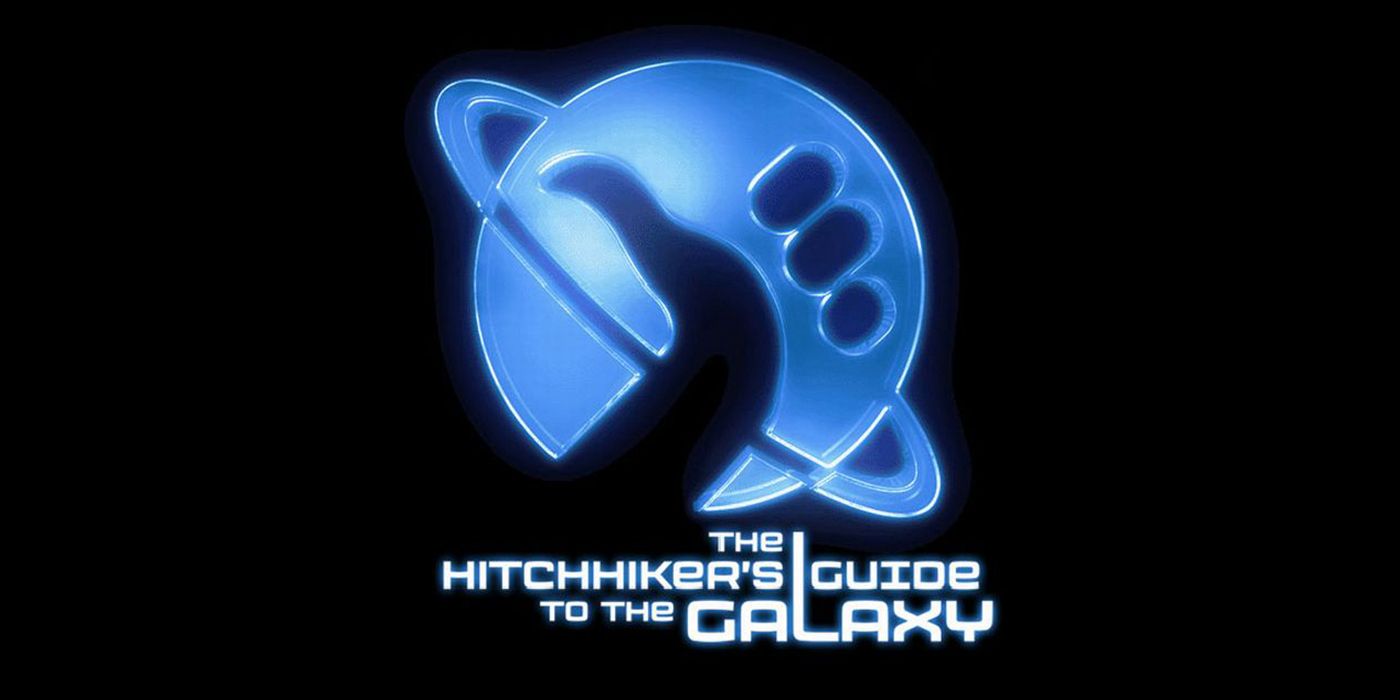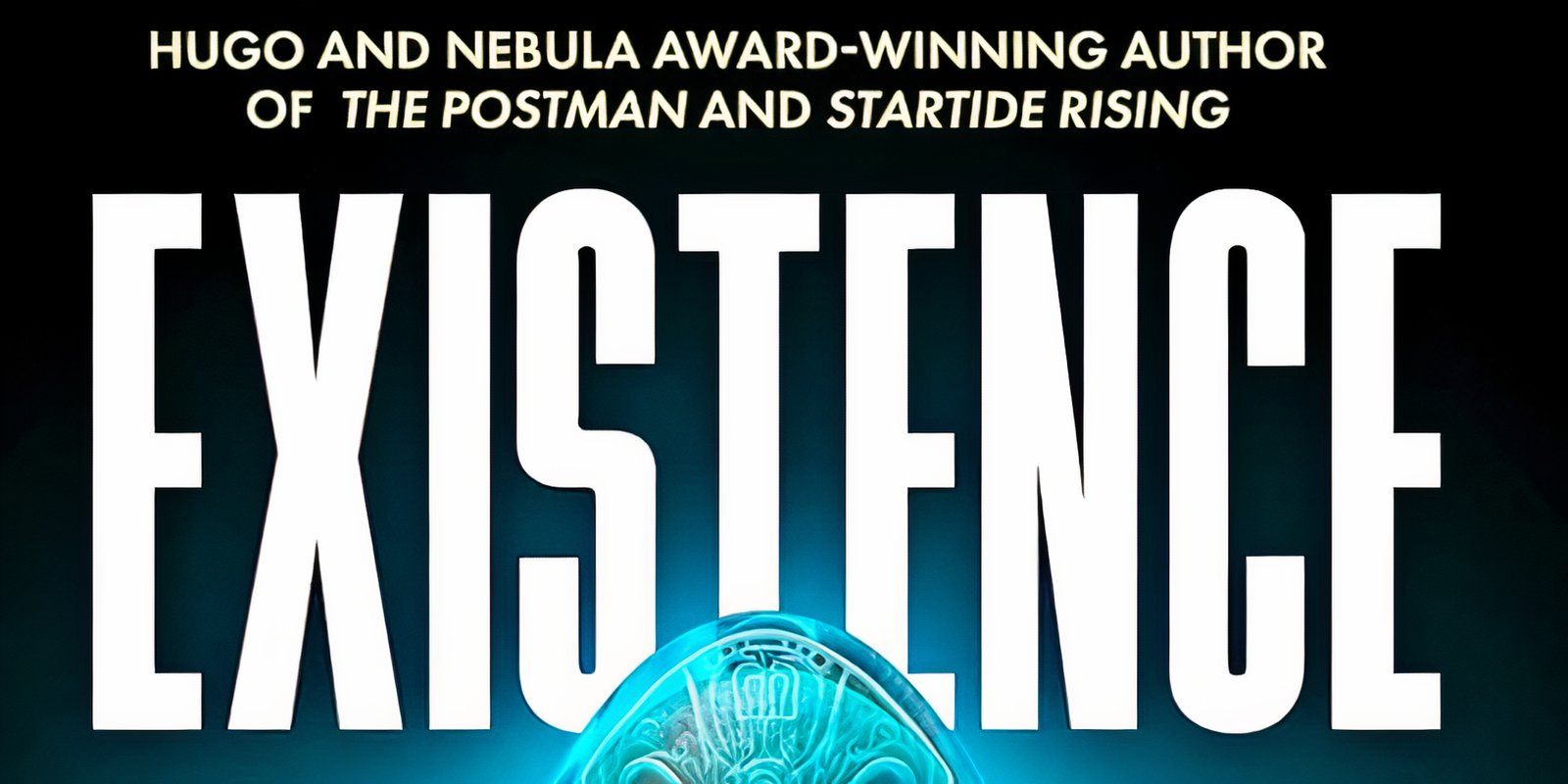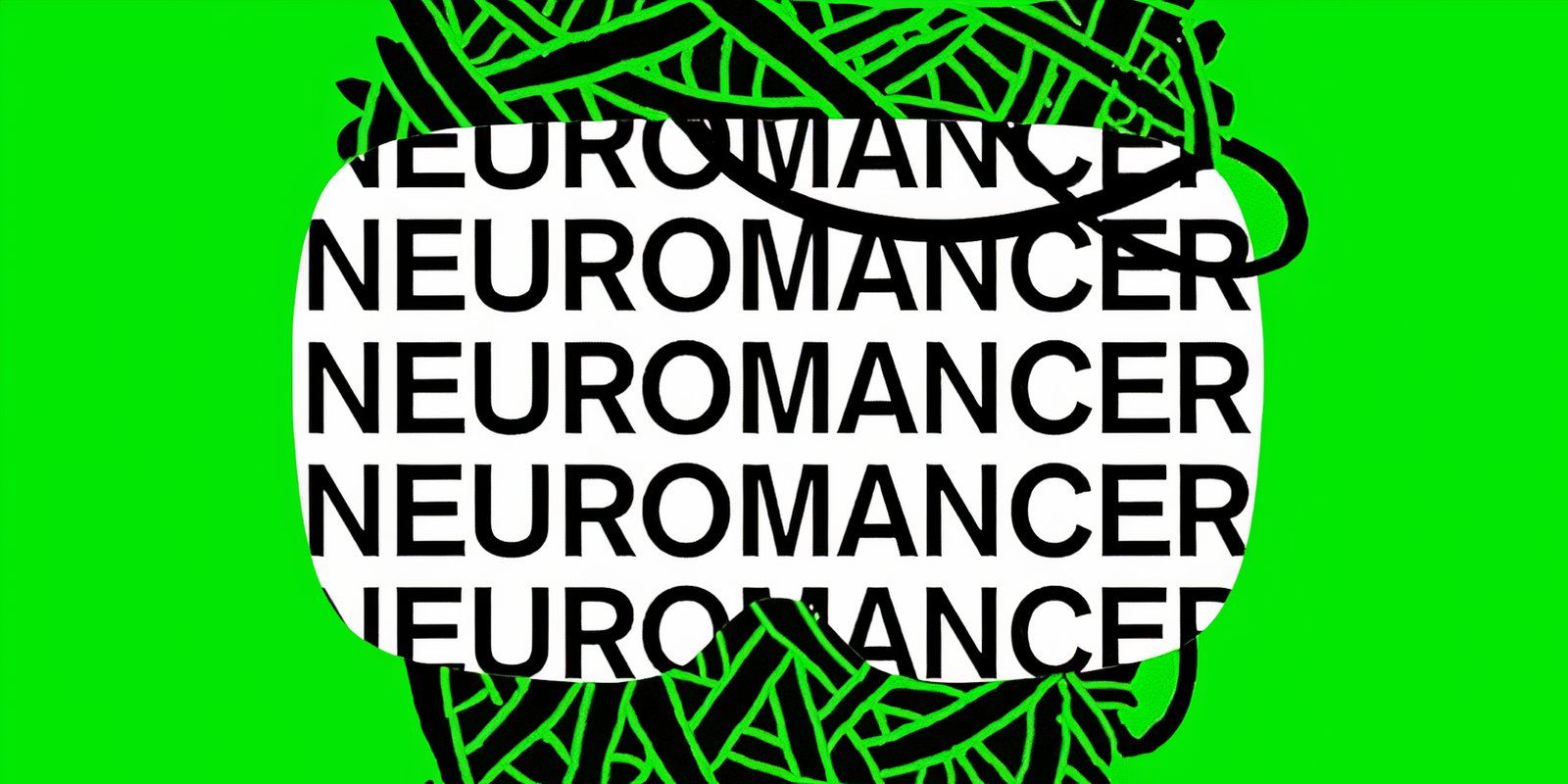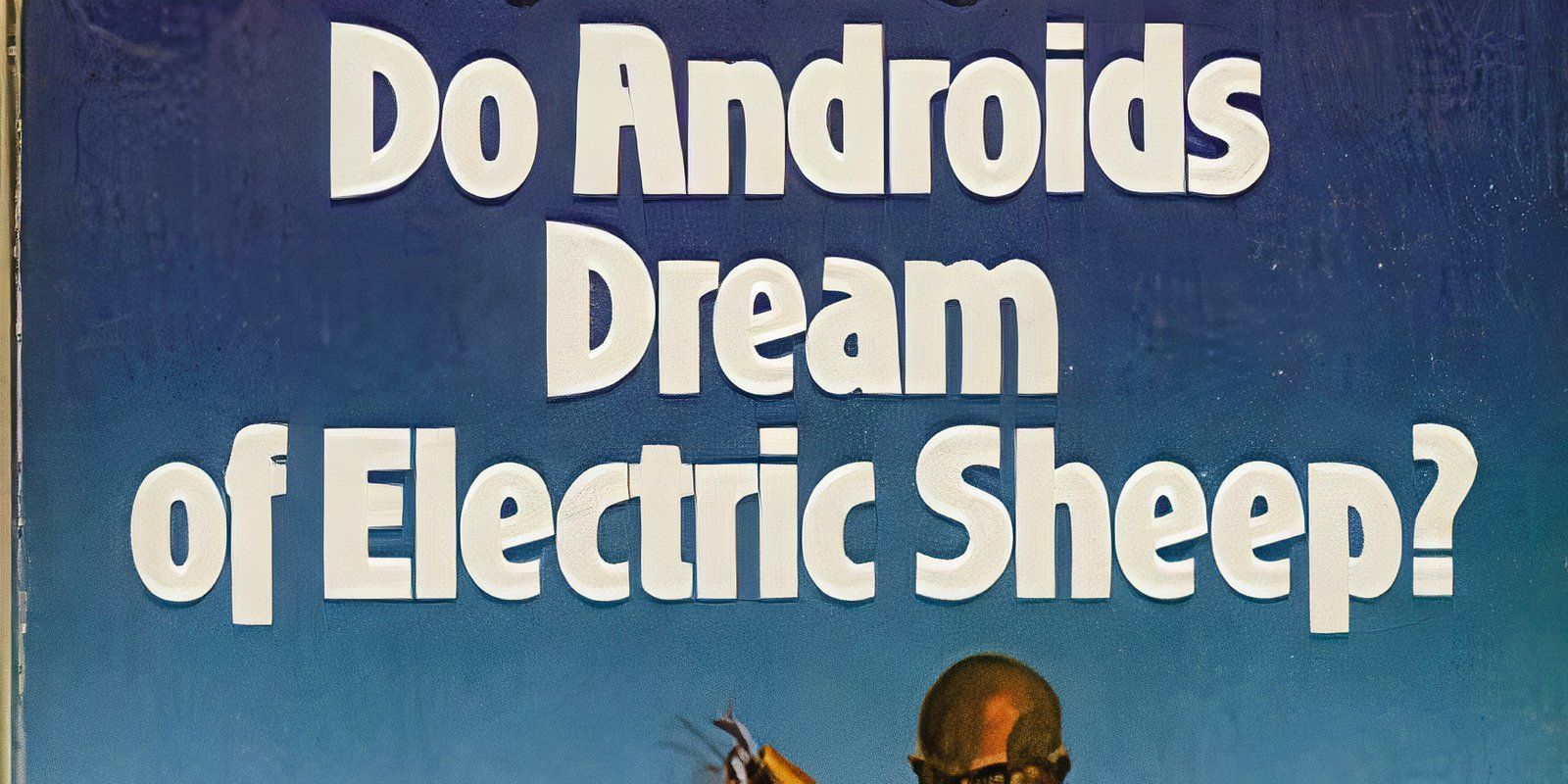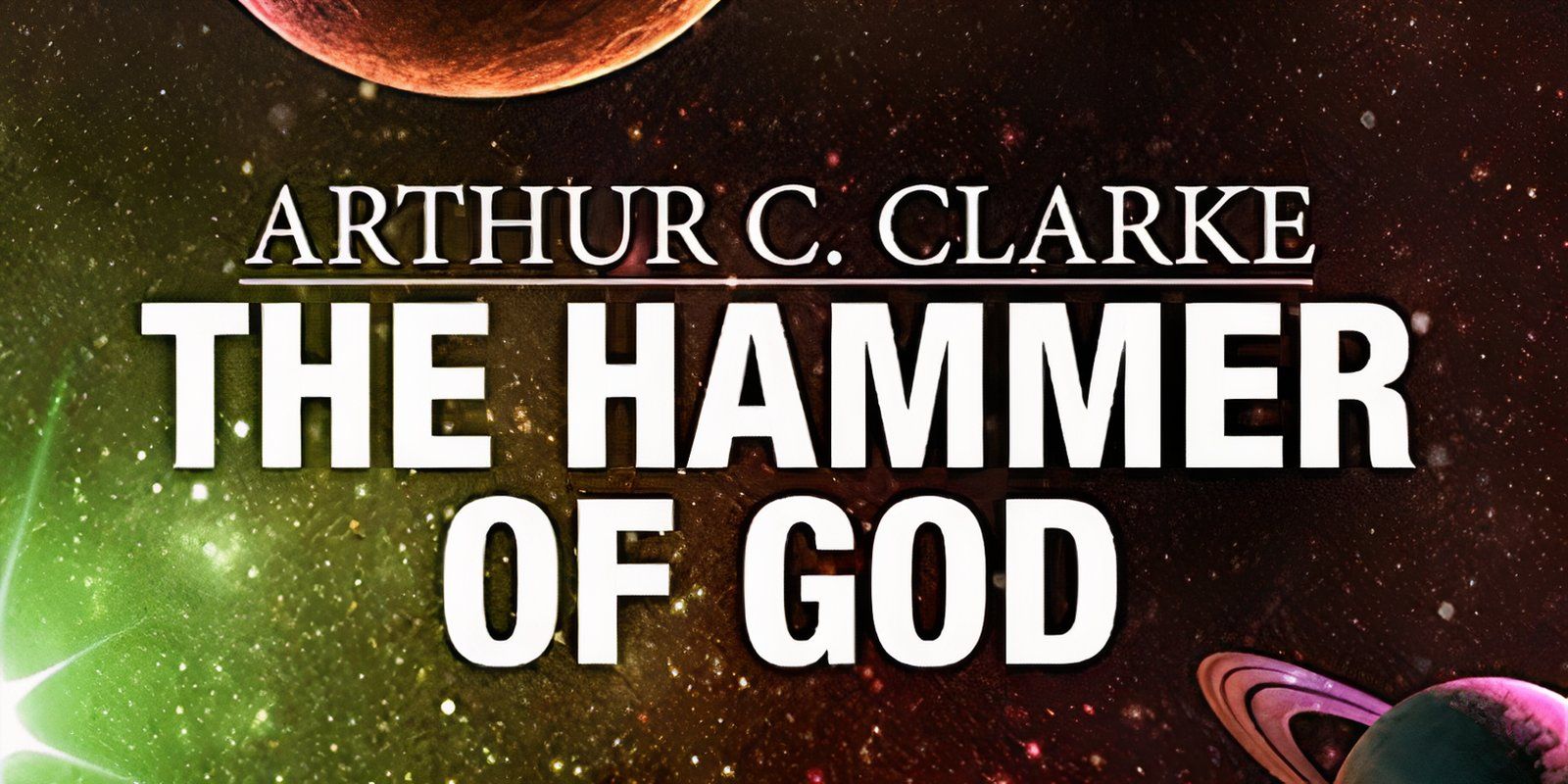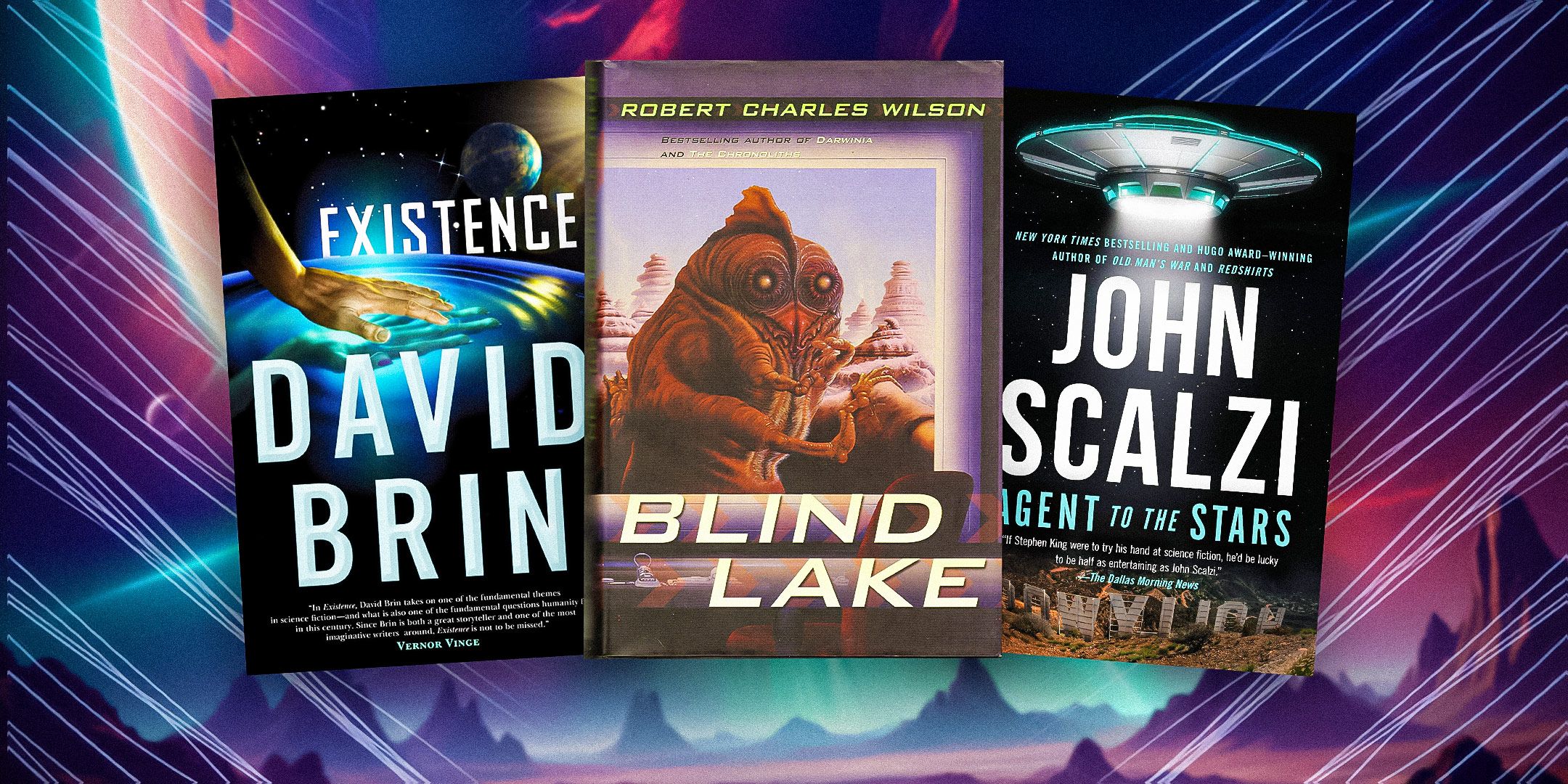
While Science fiction Books and films don't necessarily have to revolve around aliens to qualify as part of the genre; Discussions about life on other worlds have always presented compelling and memorable stories. The 1980s was a decade that saw a rise in the popularity and scale of science fiction, especially when it comes to alien narratives. Classics like Star Wars sequences, ET, the Extraterrestrialand many others have contributed to the development of the public's perception of aliens today. Whether they were fearsome antagonists or friendly allies, the depictions of these fictional creatures are far-reaching.
While some 80s sci-fi films are wacky yet fun, others take the genre more seriously and deeply interrogate universal human truths and questions. No matter which version of the genre readers are looking for, there are still many interesting messages to be found in these narratives. Even though these books don't necessarily address alien life, they speak to the themes and messages of 1980s alien films. These themes reflect the anxieties and values of the 1980s, which mainly revolved around the breakdown of the nuclear family and the general threat of the so-called “other”.
10
Blind Lake (2003)
Written by Robert Charles Wilson
The discovery of life beyond Earth is something that has preoccupied science fiction since the beginning of the genre and since the moments when humanity first looked at the stars. In Blind LakeThe story unfolds as the people in a group of scientists in Minnesota discover sentient life many light years away. This makes them too distant to contact, but provides a vital glimpse into the universe beyond Earth. While this happens, the characters' home lives continue, even after they are quarantined in their laboratory by the government.
The aliens that scientists observe in Blind Lake they have a life of their own, and this leads both the reader and the characters to reflect on their own lives.
Of course, at the heart of every alien story is the unsurprising discovery that these otherworldly beings may not be so different from humanity. The aliens that scientists observe in Blind Lake they have a life of their own, and this leads both the reader and the characters to reflect on their own lives. Like many of the great science fiction films released in the 80s, Blind Lake takes its bizarre and unexpected premise and uses it as a metaphor for the way people interact with each other on Earth.
9
The Left Hand of Darkness (1969)
Written by Ursula K. Le Guin
It's difficult to choose just one novel by science fiction writer Ursula K. Le Guin, as her work is one of the most influential of all time, both within and outside of speculative fiction. In probably his best book, The left hand of darknessthe protagonist, Genly, is an envoy of the coalition of planets, the Ekumen, and travels to Winter, or Gethen, to convince the world to join. While Gethens are similar to humans in many ways, differing in the way their gender and sexuality are expressed, as they are androgynous and can take on any form of physical sexual characteristics.
This difference is a source of confusion and misunderstanding for Genly, who is permanently biologically male and understands the world through the lens of a gender binary. Considered well ahead of its time, The left hand of darkness breaks the idea of binary and explores how everything in the universe is a combination of impulses and expressions, not framed by a specific identity. However, The left hand of darkness also covers political intrigues and adventures, allowing him to incorporate lots of action alongside his philosophical messages.
8
Agent to the Stars (2005)
Written by John Scalzi
There are many ideas about how aliens would make their presence known to humanity within the science fiction genre, and not all of them are friendly. However, in Agent of the Starsaliens are just trying to make a good impression on humans and extend a hand in friendship. Unfortunately, this isn't easy as they aren't the most attractive creatures, so they recruit Thomas Stein, a Hollywood talent agent, to help ease their transition to acceptance on Earth.
Agent of the Stars it's more comedic than some of the dark and depressing additions to the science fiction genre that concern themselves with the end of the universe.
Agent of the Stars it's more comedic than some of the dark and depressing additions to the science fiction genre that concern themselves with the end of the universe. The romance is similar to comedies like Earth girls are easy or even Space ballsand the author, John Scalzi, isn't afraid to capitalize on the culture clash between humans and aliens. For a novel with a lighter tone but still lots of space references, Agent of the Stars It's the perfect job.
7
Breaking Dawn (1987)
Written by Octavia E. Butler
Dawn is a classic science fiction book that could be turned into a film, as with most of Octavia E. Butler's works. The highly influential and iconic author wrote many of the best works of science fiction, but Dawn relates more to alien narratives from the 80s. Dawn is the first book in Xenogenesis series, which follows Lilith, one of the last members of humanity tasked with repopulating and evolving. Her journey begins when a nuclear armageddon engulfs the Earth and she is saved by a race of aliens.
However, there is a problem. The aliens, the Oankali, want to merge with humans to create a new species, and Lilith is at the forefront of this development. Questions arise about whether Lilith wants or should join the Oankali to create a new branch of humanity and what that will mean if these new people are not the humans who once lived on Earth. The following books explore what happens to these hybrid children and how the two races have opposing views on how the universe should expand.
6
The Hitchhiker's Guide to the Galaxy (1979)
Written by Douglas Adams
However The Hitchhiker's Guide to the Galaxy is a science fiction book that is more fiction than science, that doesn't make it any less developed than any other science fiction project. Although the world-building and alien life in the book are strange and humorous, they are still well-crafted and make logical sense within the story universe. The Hitchhiker's Guide to the Galaxy has been adapted for the screen several times. However, few iterations have captured the spirit of the original book, which clearly inspired 1980s sci-fi comedies.
The Hitchhiker's Guide to the Galaxy is the definition of a project that contains all the best parts of alien science fiction, but doesn't distance itself from readers.
It's a well-known work of science fiction for a reason and a great introduction to the world of speculative fiction as is told from the perspective of a relatable human, Arthur. This helps you connect with a wide variety of audiences. Part of the reason 1980s science fiction films were so popular was because they could be understood by all viewers, which made them crossover hits. The Hitchhiker's Guide to the Galaxy is the definition of a project that contains all the best parts of alien science fiction, but doesn't distance itself from readers.
The Hitchhiker's Guide to the Galaxy is a science fiction comedy film directed by Garth Jennings. It follows Arthur Dent, played by Martin Freeman, who is unwittingly drawn into an intergalactic adventure after the destruction of Earth. Arthur, along with Ford Prefect, Zaphod Beeblebrox, and Trillian, explores the space while consulting the titular guide. Sam Rockwell, Zooey Deschanel and Mos Def co-star in this adaptation of Douglas Adams' beloved novel.
- Director
-
Garth Jennings
- Release date
-
April 29, 2005
- Writers
-
Douglas Adams, Karey Kirkpatrick
- Execution time
-
109 minutes
5
Existence (2012)
Written by David Brin
When an alien artifact is discovered and plunges humanity into chaos, the characters of Existence are left to reflect on their position within the universe. The author, David Birn, is known for his contributions to science fiction and intense theoretical questions about what the discovery of alien life would mean for Earth and human society. Existence is not as highly rated as some of Birn's other work, but is still a fascinating and ambitious addition to the science fiction canon.
There are many competing stories and perspectives on Existenceas opposing ideologies and beliefs about what to do with the alien discovery provoke intense conflict and debate. Due to the strong world-building and frequent point-of-view changes, Existence It can be a difficult book to decipher. However, once readers get into the swing of the story, it focuses on universal interrogations about what any new discovery means, not just alien life.
4
Neuromancer (1984)
Written by William Gibson
William Gibson Neuromancer incorporates many of the best parts of 80s science fiction, which makes sense considering the book was written in the mid-1980s. Computer hacking is a big part of the narrative, as the protagonist, Henry, is a brilliant hacker, but is disconnected from the system that accesses the nervous system of humans. programmers. To regain access, Henry plunges headlong into a world of conspiracy and corruption in Neuromancer.
Of all the books that predict the future of technology, Neuromancer It is one of the most fully realized and holds up well today.
Of all the books that predict the future of technology, Neuromancer It is one of the most fully realized and holds up well today. Discussions about the dangers of technological innovation also occupied a large part of films from the 80s, especially within the alien genre. The world that Henry enters when he is hacking is similar to another planet, and the modifications that he and only hackers can make in cyberspace are similar to the introduction of alien technologies into human life.
3
Do androids dream of electric sheep? (1968)
Written by Philip K. Dick
Do androids dream of electric sheep? he has its own film adaptation, the iconic 1980s sci-fi film Blade runner. Although the novel and film do not deal directly with aliens, focusing instead on the emergence of technology that gives sentience to robots, this fits well with the overarching themes of the alien stories. The way the characters interact with the androids and how society views them is subhuman and something to be used and feared. This is similar to many extraterrestrial films that address the difference between humans and aliens.
Additionally, the dystopian setting and post-apocalyptic elements recall the anxieties of the 1980s at the end of the Cold War. Another important facet of the book is that the androids escape Mars and travel back to Earth in search of freedom from subjugation, which is what begins the events of the story. In the end, the protagonist, Rick Deckard, must hunt down and kill the androids of his failed society, even though he realizes how wrong this is.
2
The Hammer of God (1993)
Written by Arthur C. Clarke
Written by seminal author Arthur C. Clarke, the writer who also wrote classics like 2001: A Space Odyssey and many other projects, The Hammer of God is an epic disaster narrative. The characters in The Hammer of God Live in a distant future where human life has been extended and people are scattered among the stars, with the protagonist residing on Mars. Hammer of God takes place immediately after the discovery of an Earth-bound asteroid and the response from government and religious factions.
Throughout the story, the author and characters reflect on how humanity has already altered so much of the cosmos and the natural course of human life and what this means for the future of civilization.
Humans are almost positioned like aliens in The Hammer of Godas The book philosophizes about whether there should be intervention in a massive event like an asteroid hitting Earth. Throughout the story, the author and characters reflect on how humanity has already altered so much of the cosmos and the natural course of human life and what this means for the future of civilization. The asteroid's descent and people's varying reactions are similar to the many 1980s science fiction and disaster films that explored how people react in dire situations.
1
Hyperion (1989)
Written by Dan Simmons
Winner of the Hugo Award for best novel, Hyperion is an epic journey of a group of pilgrims to a planet in the outer rings of society to see the legendary tombs of time and the Shrike. Hyperion describes the Shrike as an ephemeral creature that will grant each of the travelers a wish. From there, the reader learns about each person on the journey and why they are there. Each story is full of tragedy and suffering and reveals new aspects of the characters' motivations and which parts of the universe led them to such terrible actions.
Often compared with The Canterbury Tales, Hyperion is told in discrete sections, with each pilgrim's story coming to life on the page. The central creature, the Shrike, is an alien god-like entity, and although his motivations are mysterious, each of the characters has come into contact with him in the past. Whether the characters see the Shrike as the answer or source of their problems is revealed throughout their stories. Hyperion and Science fiction but it has a lot in common with the high fantasy layout and uses its joint narrative to create a strong impact on the reader.
